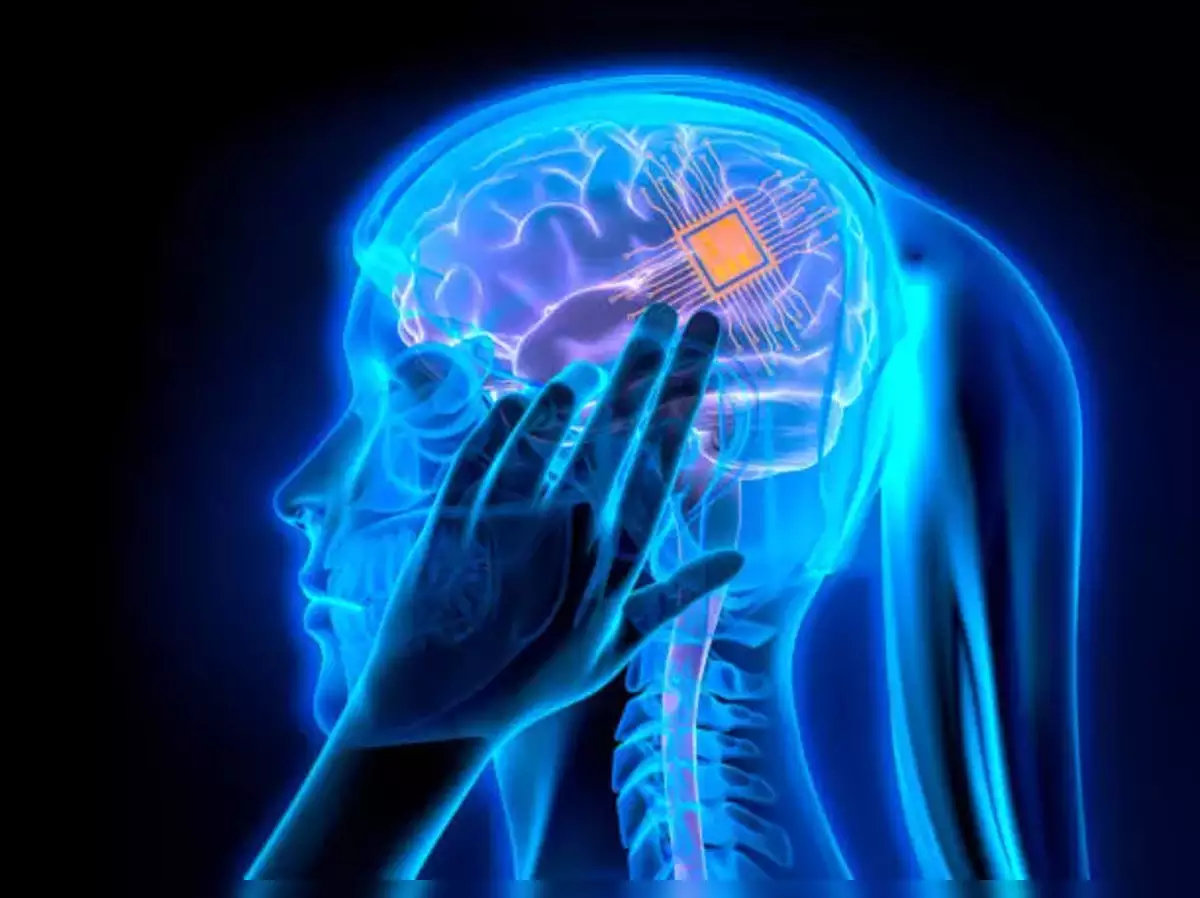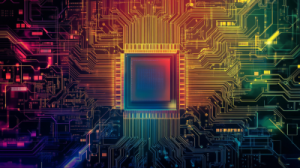Blog Credit: Trupti Thakur
Image Courtesy: Google
The First Brain Chip By Neuralink
Elon Musk’s #Neuralink implants #firstbrainchip in human
The ambition is to supercharge human capabilities, treat neurological disorders like ALS or Parkinson’s, and may be one day achieve a symbiotic relationship between humans and artificial intelligence.#elonmusk ‘s Neuralink startup had installed a brain implant in its first human patient with “promising” initial results.
The #neurotechnology company co-founded by Musk in 2016 aims to build direct communication channels between the brain and computers.
The ambition is to supercharge human capabilities, treat neurological disorders like ALS or Parkinson’s, and may be one day achieve a symbiotic relationship between humans and #artificialintelligence .”The first human received an implant from Neuralink yesterday and is recovering well,” Musk said in a post on #x , formerly #Twitter.
“Initial results show promising neuron spike detection,” he added.The start-up last year said it won approval from US regulators to test its brain implants in people.
Neuralink’s technology will mainly work through an implant called the “Link” — a device about the size of five stacked coins that is placed inside the human brain through invasive surgery.“The first human received an implant from Neuralink yesterday and is recovering well,” Musk said in a post on X, formerly Twitter.
“Initial results show promising neuron spike detection,” he added.The start-up last year said it won approval from US regulators to test its brain implants in people.
Neuralink’s technology will mainly work through an implant called the “Link” — a device about the size of five stacked coins that is placed inside the human brain through invasive surgery.Though he wins most of the headlines, Musk is hardly alone in trying to make advances in the field, which is officially known as brain-machine or brain-computer interface research.
Hit with delays, the tycoon had reportedly reached out to join forces with implant developer #Synchron about a potential investment.
Unlike Neuralink’s Link, its implant version does not require cutting into the skull to install it.
The Australia-based Synchron implanted its first device in a US patient in July 2022.The first human patient has received an implant from brain-chip startup Neuralink on Sunday and is recovering well, the company’s billionaire founder Elon Musk said.
“Initial results show promising neuron spike detection,” Musk said in a post on the social media platform X on Monday.
Spikes are activity by neurons, which the National Institute of Health describes as cells that use electrical and chemical signals to send information around the brain and to the body.
The U.S. Food and Drug Administration had given the company clearance last year to conduct its first trial to test its implant on humans, a critical milestone in the startup’s ambitions to help patients overcome paralysis and a host of neurological conditions.
In September, Neuralink said it received approval for recruitment for the human trial.
The study uses a robot to surgically place a brain-computer interface (BCI) implant in a region of the brain that controls the intention to move, Neuralink said previously, adding that its initial goal is to enable people to control a computer cursor or keyboard using their thoughts alone.
The implants’ “ultra-fine” threads help transmit signals in participants’ brains, Neuralink has said.
The first product from Neuralink would be called Telepathy, Musk said in a separate post on X.
The startup’s PRIME Study is a trial for its wireless brain-computer interface to evaluate the safety of the implant and surgical robot.
Neuralink did not immediately respond to a Reuters request for further details.
Placed in the part of the brain that plans movements, the device is designed to interpret a person’s neural activity, so they can control external devices such as a smartphone or computer with their thoughts, Neuralink’s website says. The device is currently in clinical trials, which are open to some individuals who have quadriplegia due to amyotrophic lateral sclerosis (ALS) or a spinal cord injury, according to a recruitment pamphlet.
Musk said Monday that the first Neuralink product will be called Telepathy and initially used by people who have lost the ability to use their limbs. “Imagine if Stephen Hawking could communicate faster than a speed typist or auctioneer,” he wrote. “That’s the goal.”
The implant marks a significant step for Neuralink, which has faced regulatory hurdles due to safety concerns, and places it among several companies — including Blackrock Neurotech and Synchron — that have tested brain implants on humans. Musk, whose business empire includes Tesla, SpaceX and X, the social media platform formerly known as Twitter, has been credited with reinvigorating interest in the decades-old field, known as brain-computer interface, and has hyped it up by suggesting it could be used to enhance human function more broadly.
On its website, Neuralink advertises its ambition of creating a technology to “restore autonomy to those with unmet medical needs today and unlock human potential tomorrow.”
But the company has faced obstacles that have critics skeptical of its goals. In November, four U.S. lawmakers asked the Securities and Exchange Commission to investigate if Musk misled investors about the safety of his brain implant after veterinarian records indicated experiments in monkeys resulted in “debilitating health effects,” Reuters reported.
In May, when Neuralink said it had gained approval for human trials, Ryan Merkley, director of research advocacy at the Physicians Committee for Responsible Medicine, said if Musk “cared about the health of patients, he would invest in a noninvasive brain-computer interface.”
Neuralink did not respond to a request for comment.
Elon Musk’s Neuralink says it has FDA approval for human trials: What to know
At least 42 people worldwide have had brain-computer implants, The Washington Post reported last year, including a paralyzed man who fist-bumped President Barack Obama with a robotic hand in 2016.
Neuralink’s approach is more invasive and high bandwidth than some of its competitors; its aim is to transfer data from the brain to the computer more rapidly. The device is sewn into the surface of the brain during a surgery conducted by a robot.
At a 2022 event, Musk imagined a future where people upgrade their brain chips. “I’m pretty sure you would not want the iPhone 1 stuck in your head if the iPhone 14 is available,” he said.
While most companies remain focused on therapeutic treatments, Musk has angled for a wider application, suggesting that the technology could be used to enhance human function more broadly. He’s spoken of putting humans on a path to “symbiosis with artificial intelligence” and suggested he would get the technology installed in his own brain someday.
Allan McCay, a fellow at the University of Sydney’s Law School who studies ethical issues related to emerging neurotechnologies, said in a phone interview that the idea of cognitive enhancement sparks concerns. “A society where some people are cognitively enhanced and others aren’t could create a class divide like nothing ever,” he said.
The rise of neurotechnologies, which also include external and recreational devices such as gaming headsets, also raises more immediate issues about how to regulate the use of brain data. Debate about these issues “needs to become more prominent,” McCay said.
But McCay also points to a number of potentially positive applications of neurotechnology, such as treatment of severe depression, epilepsy and locked-in syndrome.
“You can get a gloomy lawyer like me moaning on about the ethics, but it’s important to remember the enormous upsides,” he said. “Neurotechnology might alleviate quite a lot of human suffering.”
Blog By: Trupti Thakur

01
FebThe First Brain Chip By Neuralink
Feb 01, 2024Recent Blog
The ITES-QApr 17, 2025
The UPI Circle Of PhonePeApr 16, 2025
Dangerous AI In HealthcareApr 15, 2025
Google’s Iron Wood ChipApr 14, 2025
World’s First 3D Printed Train StationApr 11, 2025




